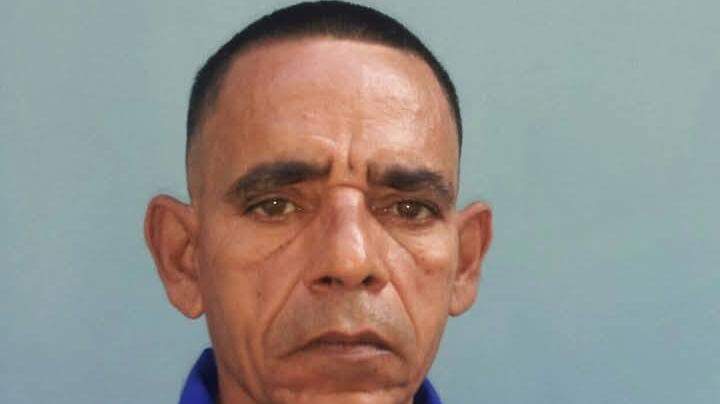SANTIAGO DE CUBA — A man was sent to prison for trying to take a video of a long line to buy gas bottles, another 15 people were tried Tuesday for protesting during a blackout, and an independent journalist faces a six-year sentence for demonstrating during an electricity outage, the latest examples of Cuba’s government’s ongoing crackdown on criticism and dissent.
A local court in Santiago de Cuba, Cuba’s second-largest city, sentenced Julio César Duque de Estrada Ferrer, 56, to 4 and 1/2 years in prison on charges of “disobedience” and “assault” of a Ministry of Interior counterintelligence officer.
Duque de Estrada was using his phone to record a crowd of people in a Santiago de Cuba street trying to buy gas bottles in September 2024 when the officer told him to stop and asked for his identification card, according to the sentencing document published Tuesday by the Cuban Observatory of Human Rights, a civil rights group based in Spain.
The officer, Mario Raciel Soulary Garces, identified himself as a member of the military and took Duque de Estrada to a nearby market to detained him, the document says. After initially disobeying the order, Duque de Estrada gave his ID to the officer but “hit him hard in the face with his hands, without further consequences,” the sentencing document claims. Then, “a struggle ensued and the accused threw his cell phone against the ground, an action that led the officer to apply a combative neutralization technique” and use a wire to tied his hands on his back while he was lying on the ground.
The judges dismissed the accounts of three witnesses that told a different version of the events. Duque de Estrada is the father of Dairon Duque Estrada Aguilera, who is a serving also a 4 and 1/2 year sentence for participating in the July demonstrations in 2021.
“The entire judicial process has been riddled with human rights violations, and the ruling is a farce, even though it also exposes the illegal and disproportionate actions of the political police agent who attacked Duque de Estrada Ferrer,” the Cuban Observatory of Human Rights said in a statement. “It’s customary for these agents to intervene with violent repression and then play the victim,” the statement added.
The group said the officer had no legal basis to detained Duque de Estrada, applied excessive force and that “in fact it was he who violently grabbed Duque de Estrada and snatched the phone from him.”
In recent years, Cuban authorities have passed several laws to punish criticism of the government on social media and have sent citizens to prison for using their cellphones to record protests. Despite international condemnation, hundreds of antigovernment demonstrators who took to the streets on July 11, 2021, are currently serving years-long sentences.
As the country has plunged into deep poverty, the government has also aggressively gone after those protesting the frequent blackouts and food shortages.
On Tuesday, Granma, Cuba’s largest daily newspaper, reported on the trial of 15 people who participated in demonstrations in the city of Bayamo, in Santiago de Cuba province, in March last year, accused of “public disorder, assault, resistance, contempt, illegal carrying and possession of weapons, disobedience and instigation to commit a crime.”
José Gabriel Barrenechea, an independent journalist and contributing writer of the independent news site 14ymedio, faces a similar trial next week, along with another five men, for protesting the blackouts in Encrucijada, in Villa Clara province, in November last year, after the country’s power grid collapsed. Barrenechea was charged with public disorder.
According to the indictment document obtained by 14ymedio, the charges were brought because he chanted “turn on the power, we want electricity,” along with other protesters, and urged “the people present to not desist from their actions.” The government attorney in the case argued that Barreneachea was an associate of “people of poor morals and social conduct, and has no recognized employment relationship” and that the journalist “shows total disaffection for the revolutionary process and its top leader,”
14ymedio reported citing the indictment. 14ymedio was founded by Cuban journalist and blogger Yoani Sanchez.
Barreneachea has been in prison since his detention in November, and Cuban authorities denied a habeas corpus petition filed on his behalf. In a letter, several independent journalists, academics and activists in Cuba and abroad urged the government to release him.
By NORA GAMEZ TORRES/Miami Herald
Nora Gámez Torres is the Cuba/U.S.-Latin American policy reporter for el Nuevo Herald and the Miami Herald. She studied journalism and media and communications in Havana and London. She holds a Ph.D. in sociology from City, University of London. Her work has won awards by the Florida Society of News Editors and the Society for Professional Journalists.

